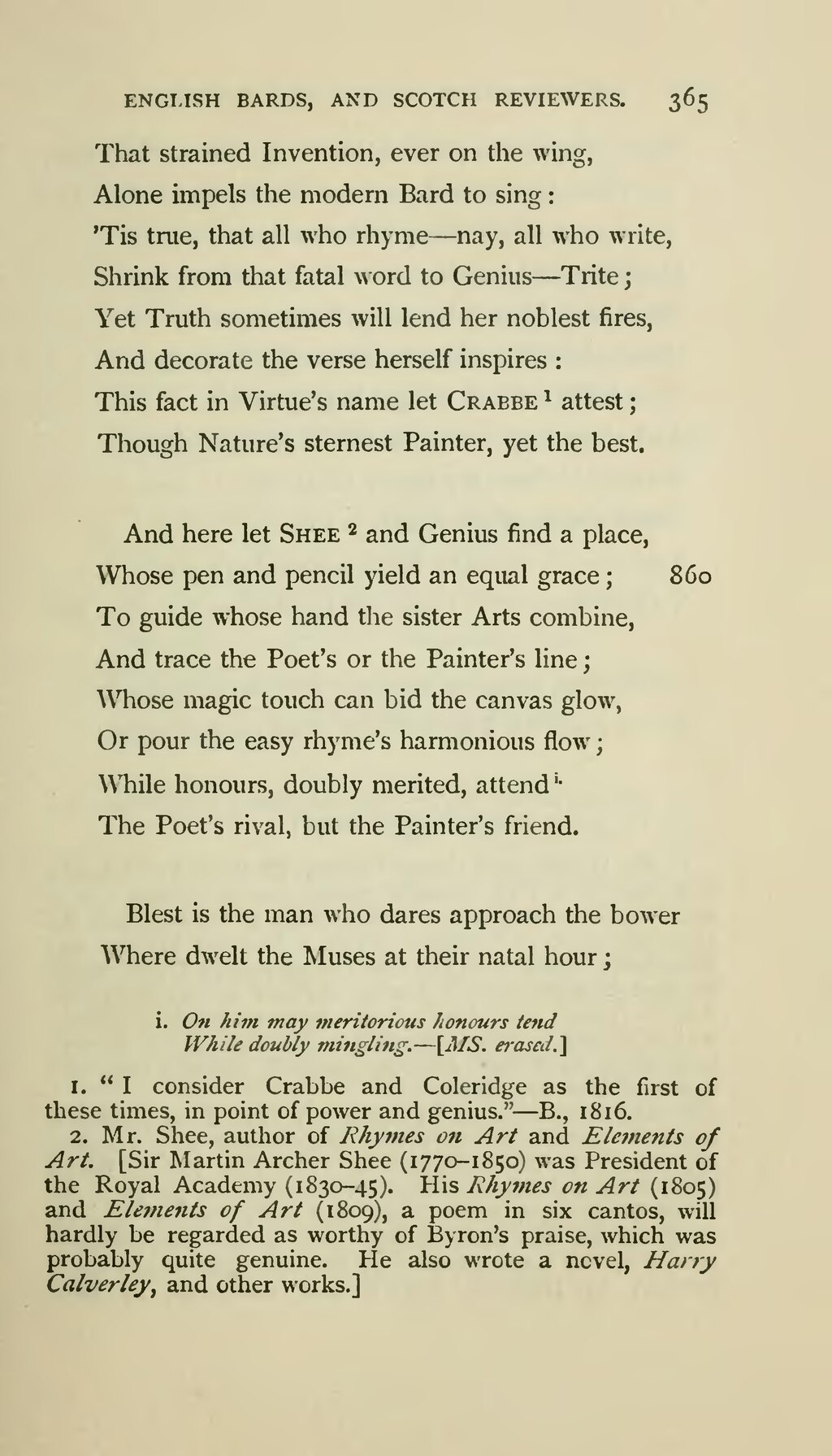That Strained Invention, ever on the wing,
Alone impels the modern Bard to sing:
'Tis true, that all who rhyme—nay, all who write,
Shrink from that fatal word to Genius—Trite;
Yet Truth sometimes will lend her noblest fires,
And decorate the verse herself inspires:
This fact in Virtue's name let Crabbe[1] attest;
Though Nature's sternest Painter, yet the best.
And here let Shee[2] and Genius find a place,
Whose pen and pencil yield an equal grace;860
To guide whose hand the sister Arts combine,
And trace the Poet's or the Painter's line;
Whose magic touch can bid the canvas glow,
Or pour the easy rhyme's harmonious flow;
While honours, doubly merited, attend[3]
The Poet's rival, but the Painter's friend.
Blest is the man who dares approach the bower
Where dwelt the Muses at their natal hour;
- ↑ "I consider Crabbe and Coleridge as the first of these times, in point of power and genius."—B., 1816.
- ↑ Mr. Shee, author of Rhymes on Art and Elements of Art. [Sir Martin Archer Shee (1770-1850) was President of the Royal Academy (1830-45). His Rhymes on Art (1805) and Elements of Art (1809), a poem in six cantos, will hardly be regarded as worthy of Byron's praise, which was probably quite genuine. He also wrote a novel, Harry Calverley, and other works.]
- ↑
On him may meritorious honours tend
While doubly mingling.—[MS. erased.]
